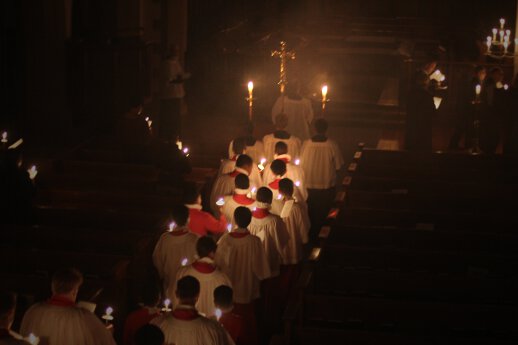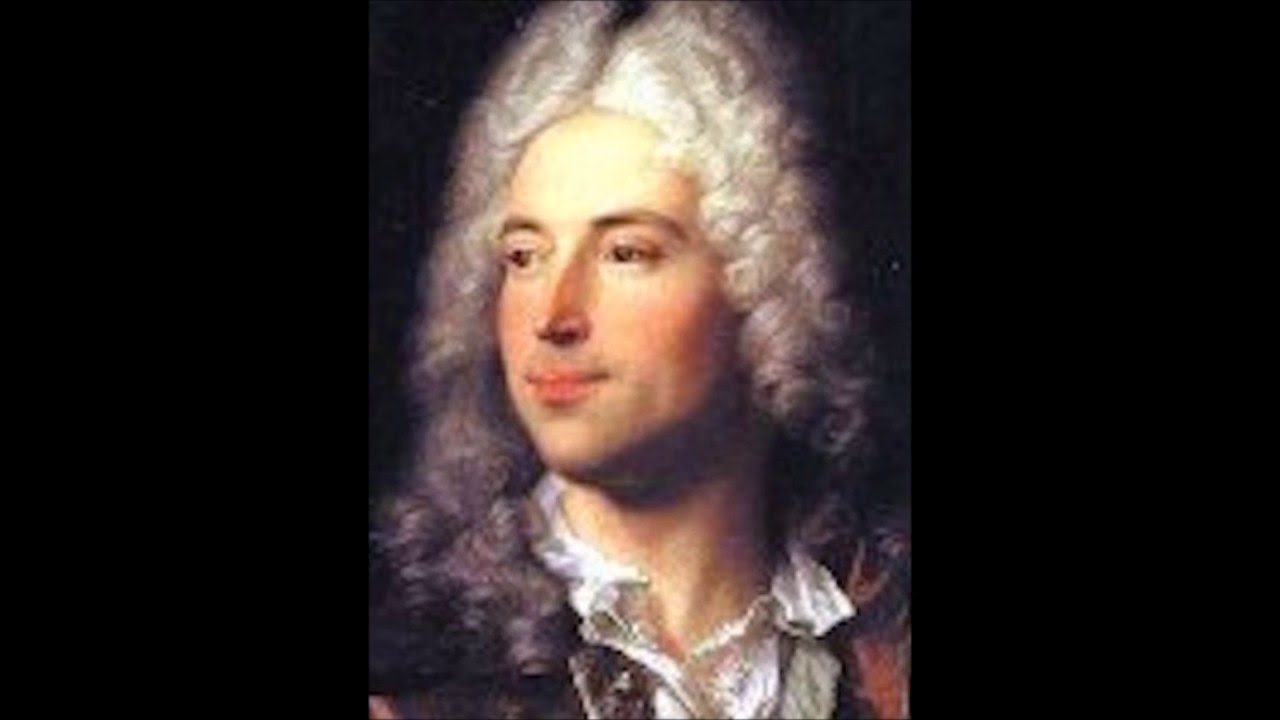Mount Calvary Church
Eutaw Street and Madison Avenue
Baltimore, Maryland
A Parish of the Roman Catholic Personal Ordinariate of St. Peter
Anglican Use
Rev. Albert Scharbach, Pastor
Candlemas
Friday, February 2
7 :00 PM
Blessing of Candles
Procession
Solemn Mass
Blessing of Throats
Reception
Prelude
Noel (Une vierge pucelle), Le Begue
Hymns
Hail to the Lord who comes
Of the Father’s love begotten
Hail gladsome light
Anthems
Diffusa est gratia, Palestrina
Diffusa est grata, Tomás Luis de Victoria
______________________________________
On Candlemas, candles are blessed because it is the Feast of the Presentation in the Temple of Jesus Christ, the Light of the world.
_____________________
Common
Mass for Five Voices, William Byrd
Here is the Kyrie.
_________________
Prelude
Noel (Une vierge pucelle), Nicolas Lebègue
Nicolas Lebègue (1631 – 1702) was a French Baroque composer, organist and harpsichordist. He was born in Laon and in the 1650s settled in Paris, quickly establishing himself as one of the best organists of the country. Lebègue was probably the first among French composers to introduce independent pedal parts in his pieces.
Here is the noel.
_____________________________
Hymns
Hail to the Lord who comes
This hymn was written by John Ellerton on 6 October 1880 at the request of Godfrey Thring for inclusion in Frances Carey Brock’s Children’s Hymn Book, which appeared in the following year. It follows the characteristic Victorian pattern set by Cecil Frances Alexande of using specially written hymns to teach children the meaning of the various Christian Festivals or articles of the Creed.
The hymn is one of very few on the Presentation of Christ in the Temple. The first verse contains a series of negatives: this is not the eschatological Christ in glory, nor the one entering Jerusalem on Palm Sunday. But in the second verse the secret is disclosed: the Lord is an infant. Here Ellerton imaginatively reinterprets Luke’s story. Mary’s breast is Christ’s earthly throne and the infant Saviour is now a guest, albeit a heavenly guest, in his Father’s earthly house. The third verse is not unlike an Italian Renaissance painting rendered into words, but towards the end of the verse the mention of Simeon recalls the ‘Nunc dimittis’*, and we return to the centre of Ellerton’s spiritual life, the services of the Church of England, which all his hymns were written to enhance.
1 Hail to the Lord who comes,
comes to his temple gate,
not with his angel host,
not in his kingly state:
no shouts proclaim him nigh,
no crowds his coming wait.2 But borne upon the throne
of Mary’s gentle breast,
watched by her duteous love,
in her fond arms at rest;
thus to his Father’s house
he comes, the heavenly guest.3 There Joseph at her side
in reverent wonder stands;
and, filled with holy joy,
old Simeon in his hands
takes up the promised child,
the glory of all lands.(4 Hail to the great First-born,
whose ransom-price they pay,
the Son before all worlds,
the child of man to-day,
that he might ransom us
who still in bondage lay.)5 O Light of all the earth,
thy children wait for thee:
come to thy temples here,
that we, from sin set free,
before thy Father’s face
may all presented be.
Here is the tune, old 120th.
_____________________________________
Of the Father’s love begotten
This hymn is a translation of corde natus ex parentis by Aurelius Clemens Prudentius (ca. 348-ca. 413), The translation is by Sir Henry Williams Baker (1821-1877) based on John Mason Neale (1818-1866).
Of the Father’s love begotten,
Ere the worlds began to be,
He is Alpha and Omega,
He the source, the ending he,
Of the things that are, that have been,
And that future years shall see,
Evermore and evermore!O that Birth for ever blessèd,
When the Virgin, full of grace,
By the Holy Ghost conceiving,
Bare the Savior of our race;
And the Babe, the world’s Redeemer,
First revealed his sacred face,
Evermore and evermore!O ye heights of heaven adore him;
Angel hosts, his praises sing;
Powers, Dominions, bow before him,
And extol our God and King;
Let no tongue on earth be silent,
Every voice in concert ring,
Evermore and evermore!Thee let old men, thee let young men,
Thee let boys in chorus sing;
Matrons, virgins, little maidens,
With glad voices answering:
Let their guileless songs re-echo,
And the heart its music bring,
Evermore and evermore!Christ, to thee with God the Father,
And, O Holy Ghost, to thee,
Hymn and chant and high thanksgiving,
And unwearied praises be:
Honour, glory, and dominion,
And eternal victory,
Evermore and evermore!
Here is St Martin’s Chamber Choir. Here it is at Corcordia Seminary.
Here is Prudentius’s original.
1. Corde natus ex parentis ante mundi exordium
A et O cognominatus, ipse fons et clausula
Omnium quae sunt, fuerunt, quaeque post futura sunt.2. Ipse iussit et creata, dixit ipse et facta sunt,
Terra, caelum, fossa ponti, trina rerum machina,
Quaeque in his vigent sub alto solis et lunae globo.3. Corporis formam caduci, membra morti obnoxia
Induit, ne gens periret primoplasti ex germine,
Merserat quem lex profundo noxialis tartaro.4. O beatus ortus ille, virgo cum puerpera
Edidit nostram salutem, feta Sancto Spiritu,
Et puer redemptor orbis os sacratum protulit.5. Psallat altitudo caeli, psallite omnes angeli,
Quidquid est virtutis usquam psallat in laudem Dei,
Nulla linguarum silescat, vox et omnis consonet.6. Ecce, quem vates vetustis concinebant saeculis,
Quem prophetarum fideles paginae spoponderant,
Emicat promissus olim; cuncta conlaudent eum.7. Macte iudex mortuorum, macte rex viventium,
Dexter in Parentis arce qui cluis virtutibus,
Omnium venturus inde iustus ultor criminum.8. Te senes et te iuventus, parvulorum te chorus,
Turba matrum, virginumque, simplices puellulae,
Voce concordes pudicis perstrepant concentibus.9. Tibi, Christe, sit cum Patre hagioque Pneumate
Hymnus, decus, laus perennis, gratiarum actio,
Honor, virtus, victoria, regnum aeternaliter.
The tune is DIVINUM MYSTERIUM, a plainchant from Piae Cantiones (1582) , although the tune is older. It originated as a Trope to the Sanctus and is found in tropers of the Middle Ages in Germany and Italy, sometimes with the words ‘Divinum Mysterium’. The tune has been effectively modernized, but retains the name.
____________________________
O gladsome light
O gladsome light is a translation by Robert Bridges (1844-1930) of the Phos hilaron. ‘Phos hilaron’ (‘joyful light’) is an ancient hymn originating in the early church and sung daily at Vespers (hesperinos) in the Byzantine liturgy of the hours. St. Basil the Great (d. 379) described it as ancient, in fact so old that he did not know who wrote it, and he equated it with thanksgiving for the light.
1 O gladsome Light, O Grace
of God the Father’s face,
th’eternal splendor wearing;
celestial, holy, blest,
our Savior Jesus Christ,
joyful in Thine appearing.
2 Now, as day fadeth quite
we see the evening light,
our wonted hymn outpouring;
Father of might unknown,
Thee, His incarnate Son,
and Holy Ghost adoring.
3 To Thee of right belongs
all praise of holy songs,
O Son of God, Life-giver;
Thee, therefore, O Most High,
the world does glorify
and shall exalt forever.
Here are the Cambridge Singers.
__________________________________________________________
Anthems
Diffusa est gratia, Palestrina
Diffusa est gratia in labiis tuis propterea benedixit te Deus in aeternum.
Grace flows from your lips, because God has blessed you for ever.
Here are The Sixteen.
Diffusa est grata, Tomás Luis de Victoria


Thank you for this beautiful post. Unfortunately, we will be in Virginia this Friday, otherwise we would attend this service. I love seeing and hearing the music.
A few times a year my husband and I will go to Evensong at St. Thomas 5th Avenue (the oldest men and boy’s choir in the country) for a similar spiritual experience. The music! It’s glorious!